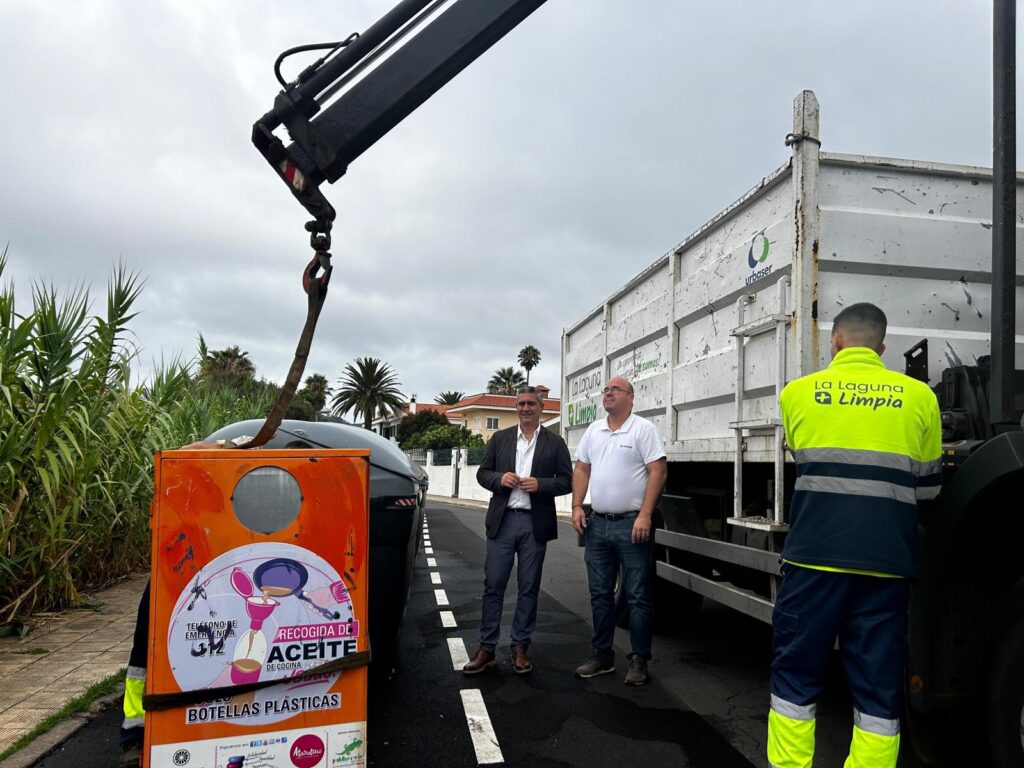
SANTA CRUZ DE TENERIFE, Oct. 20 (EUROPA PRESS) –
The president of the Cabildo of Tenerife, Rosa Dávila, announced this Friday that the corporation manages projects worth more than 40 million to advance the development of biostabilization on the island.
“We are betting on the revaluation of waste,” he stressed to journalists after meeting with the Minister of Ecological Transition of the Government of the Canary Islands, Mariano Hernández Zapata, highlighting that they have already delivered the projects to the Executive.
These initiatives are funded by our own funds, from the autonomous community and from the community.
Specifically, some 16 million will be allocated to expanding the Tenerife Environmental Complex plant, in Arico, with a new treatment plant that allows the biological treatment of selectively collected organic matter to transform it into compost.
Dávila has pointed out that the “serious problem” suffered by the entire Canary Islands with the declaration of energy emergency, with the 80 megawatt deficit that Tenerife has, has also been addressed at the meeting, which has forced the Government and the Ministry of Ecological Transition to look for a “transitional solution” while waiting for the competitions.
Thus, he has not hidden the fact that any island can suffer energy zero, as happened to La Gomera last summer.
Regarding renewable energies, he highlighted the “extreme diligence” of the regional Executive to incorporate new photovoltaic and wind plants and areas dedicated to their development.
The counselor has pointed out that the Cabildo is a “great ally” to face the energy emergency on the island and right now the authorizations are already being called, until October 26, so that any company can opt for energy generation, which can be conventional, although it has been “prevailed” that it can be through more respectful fuels or batteries.
According to Hernández Zapata, “the key is that these groups are small, between 15 and 30MW, so that at no time can the penetration of renewables on the island be stopped, which can facilitate it.”
He has also said that we must “work together” in the planning of energy storage infrastructure because it will be essential to take the “definitive step” in the penetration of renewables.
The president has also indicated that more resources are needed to defend biodiversity, preservation and dissemination of natural spaces and in that sense, she has pointed out that discharges into the sea are a “task that cannot be postponed” because it “affects” people’s health. and the island’s ecosystems.
He has indicated that thanks to the agreement with Acuaes, work is already underway on several desalination and purification projects, but he understands that work must continue to catalog all the discharges “and put an end to them.” “We got on from minute one,” he highlighted.
THE TEIDE PLAN WILL BE REGULATED “FROM YOU TO YOU” BETWEEN COUNCIL AND GOVERNMENT
Regarding gas, which was not the reason for the meeting, the counselor did specify that Cepsa can now dismantle its deposits in Santa Cruz de Tenerife “and can install itself permanently” in Granadilla, which represents an “important step” for the island and Santa Cruz de Tenerife.
In fact, he pointed out that it is positive that companies have a “where in the medium term they can develop fuels that are more respectful of the environment, it does not have to be gas, it can be ecofuels, progress is being made rapidly and there are many interested companies, it could be a key to the future”.
Regarding the governing plan of the Teide National Park, he has indicated that future planning will be dealt with “on a case-by-case basis” so that the Cabildo “is the protagonist in decision-making” within the new way of working that he wants to implement in his department so that “the islands participate directly and do not enter at the last minute when the documents are approved. “We want collaboration to be the trademark of the house,” he added.
















